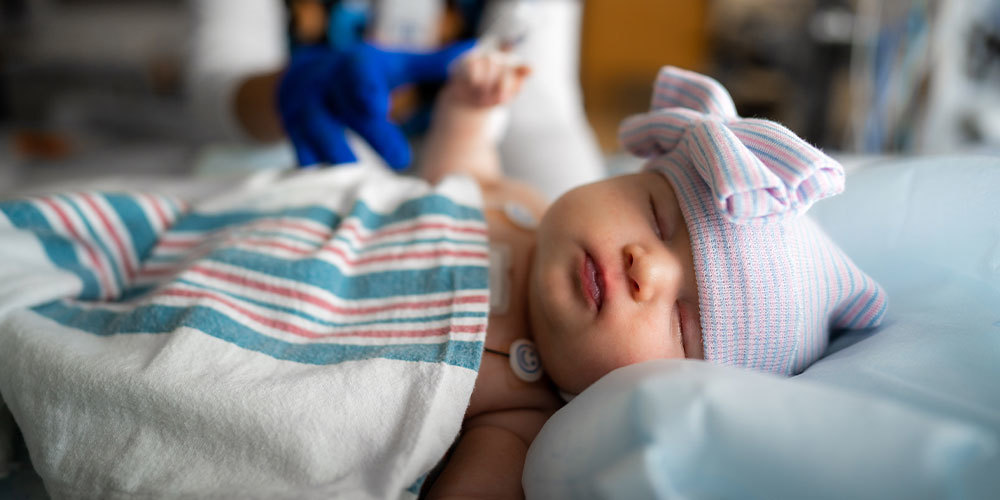Cardiac Tumors
A cardiac tumor is a growth of abnormal tissue within the heart muscle or one of the heart chambers.
About Cardiac Tumors
Many types of cardiac tumors can be found in children. Cardiac tumors can be located virtually anywhere in the heart, including in the heart muscle, around the valves, and inside the collecting and pumping chambers of the heart. Approximately 1% of cardiac tumors in children are cancerous.
Common types of cardiac tumors include:
- Fibromas are benign (noncancerous) tumors that are composed of fibrous (connective) tissue.
- Rhabdomyomas are benign (noncancerous) tumors that are composed of striated muscle.
Less common types of cardiac tumors include:
- Hemangiomas are benign (noncancerous) tumors that are composed of blood vessels.
- Myxomas are benign (noncancerous) tumors that are composed of primitive connective tissue (mesenchymal cells)
- Teratomas are malignant (cancerous) tumors are composed of tissues from more than one of the three germ cell lines.
Symptoms of Cardiac Tumors
Most children with cardiac tumors will have symptoms that are specific to the location and size of the tumor.
Symptoms of cardiac tumors may include:
- Chest pain
- Irregular heart beats
- Shortness of breath
- Tiring easily during exercise (for babies, this includes tiring during feeds)
Diagnosing Cardiac Tumors
During physical examinations, your child’s doctor listens to your child’s heart and lungs and may detect a heart murmur, which are extra sounds heard throughout the cardiac cycle due to increased blood flow. If your pediatrician suspects increased blood flow in the right atrium, a recommendation to see a pediatric cardiologist may be made. Your doctor may also refer you to a pediatric cardiologist if your child is breathing fast or has poor exercise tolerance (for babies, this includes poor feeding).
Tests performed when diagnosing cardiac tumors may include:
- Cardiac MRI or CT Scan: A cardiac MRI or CT scan is used to take more detailed images of the heart to help define the anatomy and detect anomalies.
- Chest X-Ray: A chest X-ray produces an image of the tissue and bones in the heart and lungs and helps your provider assess the shape, size, and structure of the heart and lungs as well as the aeration of or any congestion in the lungs.
- Echocardiogram: An echocardiogram uses ultrasound technology to create a moving image of the heart and its valves, allowing your provider to assess the structure and function of the heart. An echocardiogram also helps provide information about blood flow and how well the heart is pumping blood.
- Electrocardiogram (ECG or EKG): An electrocardiogram uses electrodes that are placed on the body to record the electrical activity taking place in the heart. An ECG/EKG test helps detect abnormal rhythms, such as cardiac arrhythmias, stress on the heart, and damage to the heart muscles.
Treating Cardiac Tumors
Treatment options vary based on your child’s age, health, and medical history as well as the size, location, and suspected type of the tumor.
Treatment options for cardiac tumors may include:
- Observation: Depending upon the size and location of the tumor as well as the suspected type of tumor, treatment may involve careful monitoring of the tumor through frequent visits with a pediatric cardiologist.
- Surgery: If the tumor is interfering with the hearts normal function, surgery may be required to remove the tumor. Surgery may also be necessary to remove tumors that are not thought to go away on their own.
Care Team Approach
The Texas Center for Pediatric and Congenital Heart Disease, a clinical partnership between Dell Children’s Medical Center and UT Health Austin, takes a multidisciplinary approach to your child’s care. This means your child and your family will benefit from the expertise of multiple specialists across a variety of disciplines. Your care team will include pediatric cardiologists, cardiothoracic surgeons, interventional cardiologists, critical care specialists, hospitalists, anesthesiologists, perfusionists, nurses, advanced practice providers, social workers, psychologists, child life specialists, dietitians, physical and occupational therapists, pharmacists, and more, who work together to provide unparalleled care for patients every step of the way. We collaborate with our colleagues at the Dell Medical School and The University of Texas at Austin to utilize the latest research, diagnostic, and treatment techniques, allowing us to identify new therapies to improve treatment outcomes. We are committed to communicating and coordinating your child’s care with referring physicians and other partners in the community to ensure that we are providing comprehensive, whole-person care.
Learn More About Your Care Team

Texas Center for Pediatric and Congenital Heart Disease
Dell Children's Specialty Pavilion
4910 Mueller Blvd., Austin, Texas 78723
1-855-324-0091
Get Directions